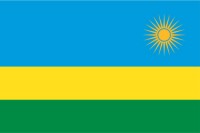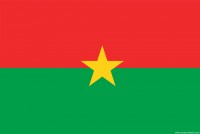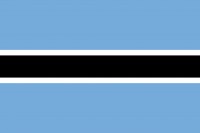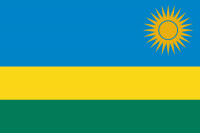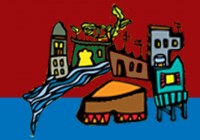Published in Thursday March 7th, 2013
Read Rwanda’s statement regarding the presentation given by the Special Rapporteur about her mission report on March 4th, during the 22nd session of the Human Rights Council.
Published in Wednesday March 6th, 2013
Read Burkina Faso’s statement regarding the presentation given by the Special Rapporteur about her thematic and mission reports on March 4th, during the 22nd session of the Human Rights Council.
Published in Wednesday March 6th, 2013
Read Botswana’s statement regarding the presentation given by the Special Rapporteur about her thematic and mission reports on March 4th, during the 22nd session of the Human Rights Council.
The three-days regional consultation on Land Rights Policy which began at the Zwedru Multilateral High School which was climaxed at the Zwedru City Hall brought together Superintendents of Sinoe and Grand Gedeh Counties. The consultation was also attended by elders, chiefs, youth, and women from various districts and chiefdoms.
Published in Friday March 1st, 2013
In Reports
On March 4th, the Special Rapporteur Raquel Rolnik presented to the Human Rights Council, in Geneva, her report on the mission to Rwanda, carried out between July 5-13, 2012. Know more.
Published in Tuesday February 19th, 2013
On March 4th, Special Rapporteur Raquel Rolnik will present her first thematic report on security of tenure at the 22nd session of the UN Human Rights Council. In the same occasion, the Rapporteur will also present three mission reports.
Palm oil companies are grabbing more than 1.5 million acres of land in Liberia and are violating the human rights of local communities, warn Liberian NGOs including Friends of the Earth Liberia (SDI – Sustainable Development Institute), Save My Future Foundation (SAMFU) and Social Entrepreneurs for Sustainable Development (SESDev).
In the village of Lakka whole stretches of coastline are littered with the remains of buildings whose foundations have been washed from underneath them as a result of sand-mining. Many coastal residents can only watch as the coastline draws ever-nearer to their homes.
Balu Kargbo lives just a few feet away from a cliff of loose sand at the edge of Hamilton Beach, 8 km from Freetown. She is very concerned about the threat to her home but, like her neighbours, she cannot afford to move. “The beach is getting shorter all the time,” she says.
In the village of Makonkonde in western Sierra Leone, Mabinti, who no longer knows her age, sits on a low wooden stool in the dappled shade of several palm trees. She clutches a solitary papaya fruit in hands toughened by a lifetime of hard manual work.
Small-scale farming is not an easy way to make a living in rural Sierra Leone. Mabinti’s only real chance of selling her papaya is by waiting for customers travelling along the sandy track running through town, which sees just one or two motorbikes per hour.
The impact of the inequality in lands rights has aggravated women’s socio-economic status, allowed for sexual harassment and violence against women and contributed towards marital instability, separation and divorce.
This assertion was made by the Executive Director, Women Environmental Programme (WEP), Ms. Priscilla M. Achakpa in her address entitled “Gender land evaluation using gender evaluation criteria” presented at a training workshop on gender and land evaluation held in Abuja yesterday.
